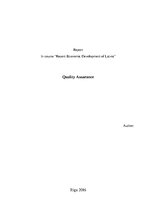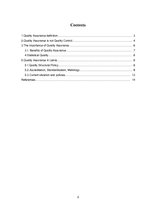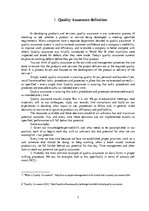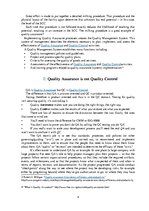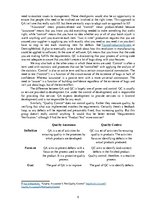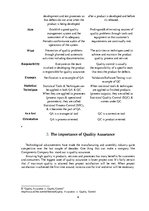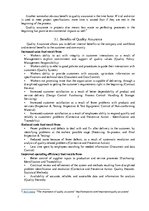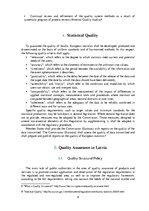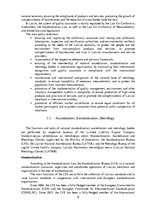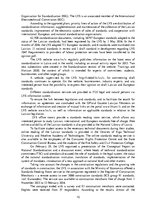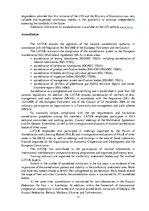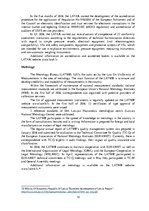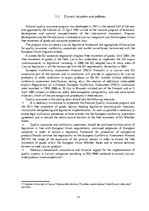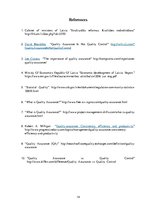-
Quality Assurance in Latvia
| Nr. | Chapter | Page. |
| 1. | Quality Assurance definition | 3 |
| 2. | Quality Assurance is not Quality Control | 4 |
| 3. | The importance of Quality Assurance | 6 |
| 3.1. | Benefits of Quality Assurance | 6 |
| 4. | Statistical Quality | 7 |
| 5. | Quality Assurance in Latvia | 8 |
| 5.1. | Quality Structural Policy | 8 |
| 5.2. | Accreditation, Standardisation, Metrology | 9 |
| 5.3. | Current situation and policies | 12 |
| References | 14 |
5.3. Current situation and policies
National quality assurance program was developed in 1993 in the second half of the year and approved by the Cabinet on 12 April 1994, as one of the national program of economic development and national competitiveness of the international movement. Program development and the life realization is directed to Latvian integration into the European Union free movement of goods and consumer protection laws.
The program aims to create a Latvian legislative framework and appropriate infrastructure for quality assurance, conformity assessment and market surveillance, harmonized with the European Union's legislative body.
It closed the EU accession negotiation chapters Free movement of goods. Until 2003, the free movement of goods in the field, Latvia has undertaken to implement the full acquis communautaire, its legislation, including in 2000 the EU adopted laws. In many areas of Latvian legislation it will be harmonized with the EU requirements, the earliest in 2003.
European Conformity Assessment Protocol (PECA Protocol) is a Latvian and EU associative part of the contract and its conclusion will provide an opportunity for Latvian producers to softer conditions to export products to the EU markets without additional conformity assessment (certification, testing, etc.), the creation of additional value-added exports. Negotiations on a Protocol European Conformity Assessment (PECA) conclusion were launched in 1998. 2000 on 10 July in Brussels initialed text of the Protocol and on 5 April 2001 annexes on electrical safety, electromagnetic compatibility, toys and construction materials, which will ensure recognition procedures in these sectors.
…
Referāts angļu valodā par kvalitātes nodrošināšanu kopumā, un kvalitātes nodrošināšanu Latvijā.

